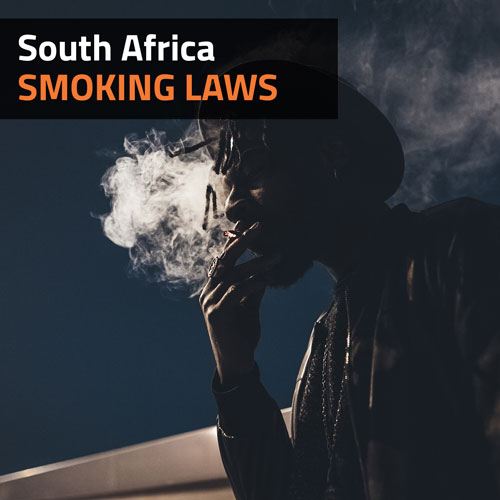New smoking laws to be implemented in South Africa are going to be stricter than those we currently know. Soon, these new laws will be presented before the National Assembly on behalf of the Department of Health, whose aim is to control smoking areas and regulate the vaping sector.
-
 Puffmi DY4500 Grape IceR220.00
Puffmi DY4500 Grape IceR220.00 -
 Puffmi DY4500 Blue RazzR220.00Rated 5.00 out of 5 based on 1 customer rating
Puffmi DY4500 Blue RazzR220.00Rated 5.00 out of 5 based on 1 customer rating -
 Puffmi DY4500 Energy DrinkR220.00
Puffmi DY4500 Energy DrinkR220.00
What Is In Store For Us?
The new draft bill aims to create zero-smoking areas in public places, as well as banning indoor smoking – including private households while children are present. There will also be more control regarding the packaging and general marketing of products that contain tobacco. This will specifically target the new generation of smokers.
Vaping currently falls in the grey area in terms of laws and regulations. The bill itself provides no detail on which regulations will be implemented on vaping, but the Department of Health’s Chief Director for health promotion, Dr Lynn Moeng-Mahlangu, is planning on determining separate regulations in due time.
Since vape stores are very often located near youth centres such as malls and universities, regulations are necessary to keep the youth from turning to vaping. Once again, there will be no ban on cigarettes or vaping products, there are simply new regulations coming into effect in the best interest of the public.
Is The Department Of Health Overstepping Boundaries?
The draft laws themselves have been received with a significant amount of backlash from both tobacco and vaping industries. Asanda Gcoyi, the CEO of the Vapour Products Association of South Africa, mentioned that the vaping industry has been self-regulatory and has made significant improvements to professionalise the vaping industry.
Gcoyi also mentioned that governmental regulation is welcome as it helps to protect consumers. However, the planned laws seem to be overstepping boundaries as they did not consult with the industry itself – especially since vaping is specifically designed to help people to stop smoking and switch to a healthier alternative.
The Target Public Of Vaping
Implementing vaping regulations will directly impact those who are struggling to quit smoking and are looking for the most effective way out. Since vaping is much healthier than smoking and has the best success rate of getting people to make the switch, implementing restrictions may cause some hesitancy to quit smoking and start vaping.
The Youth And Vaping
When it comes to the youth and vaping, the concern is shared by the industry as well. However, a partnership between the vaping industry and the Health Department would be much more beneficial than making a one-sided decision.
There is currently no communication between the two entities, so it makes it difficult to run vaping campaigns and make sure that the youth do not have access to these products. Even though producers and sellers of vaping products must sign strict codes of conduct, the Health Department wishes to take its own steps in restriction.
Gcoyi states that changes to the packaging of vaping products to make it child-proof and warn against the addictive properties of nicotine have already been implemented without the Health Department having to intervene. The vaping sector feels more than capable of implementing better practices if the Health Department wishes to collaborate.
However, for the Health Department, vaping has only increased the number of young nicotine consumers. This outweighs the pros of vaping in their eyes, and they have admitted to seeing no benefit from vaping products. This is quite a bold claim to make, as there is proof that vaping has bettered the lives of countless ex-smokers.
The Enforcement Of These New Laws
The chair of the Fair Trade Independent Tobacco Association, Sinenhlanhla Mnguni, stated that governmental regulations are implementing laws that will influence the value chain of the industry. Since the Health Department has not engaged with vaping and tobacco industries, people who rely on the industry for income are being disregarded.
Mnguni also mentions that the tobacco industry is much more regulated than the alcohol and cannabis industry. Adding more regulations on products in the industry will be less beneficial than ensuring that current laws are better enforced.
Additionally, there are not enough Health Department Inspectors to make sure that people are not violating the laws, especially regarding bans on smoking indoors. However, if the public becomes aware of smoking practices that are against the law, they are more likely to report violators.
What The New Smoking Laws Wish To Accomplish
The proposed laws on smoking and vaping were originally published for comments in 2018 after the cabinet had approved the draft bill. The bill is addressing key areas relating to indoor public spaces. The display of tobacco products, the use of vaping devices, and packaging.
An Explanatory Summary Of The Bill
The bill currently provides for:
- 100% smoke-free zones for indoor public places or outdoor areas as the minister may prescribe
- A ban on cigarette sales through vending machines
- Plain packaging of tobacco products with graphic health warnings or imagery
- Bans on display at point-of-sale systems
- The control and regulation of electronic nicotine delivery systems as well as nicotine free delivery systems
Additional Implications
- A ban on smoking in the workplace, as well as homeowners who are in the presence of domestic workers on their premises
- If a home is used for tutoring, teaching, or commercial childcare, there should be a ban on smoking on the premises
- A ban on smoking in a vehicle where children under 18 are present
- A ban on smoking in enclosed common areas of multi-unit residences
- The Minister could potentially prohibit smoking in any public or outdoor space if they come to the conclusion that it would be in public interest
- An implementation of stricter rules on the depiction of tobacco products, including confectionaries or toys that may resemble tobacco products
- Harsh jail time or fines depending on the offence:
- Smoking in banned areas – a substantial fine or 3 months in prison
- Manufacturing or importing tobacco products that do not meet requirements – a substantial fine or up to 10 years in prison
The current smoking laws have imposed a ban on smoking in public spaces but still allow for smoking in designated areas, as long as they do not take up more than a 25% capacity of the venue. If the new laws are passed, there will be a 100% prohibition on smoking in public areas. Although there are no current laws on vaping products, the Department of Health is working on implementing specific restrictions in the field.






